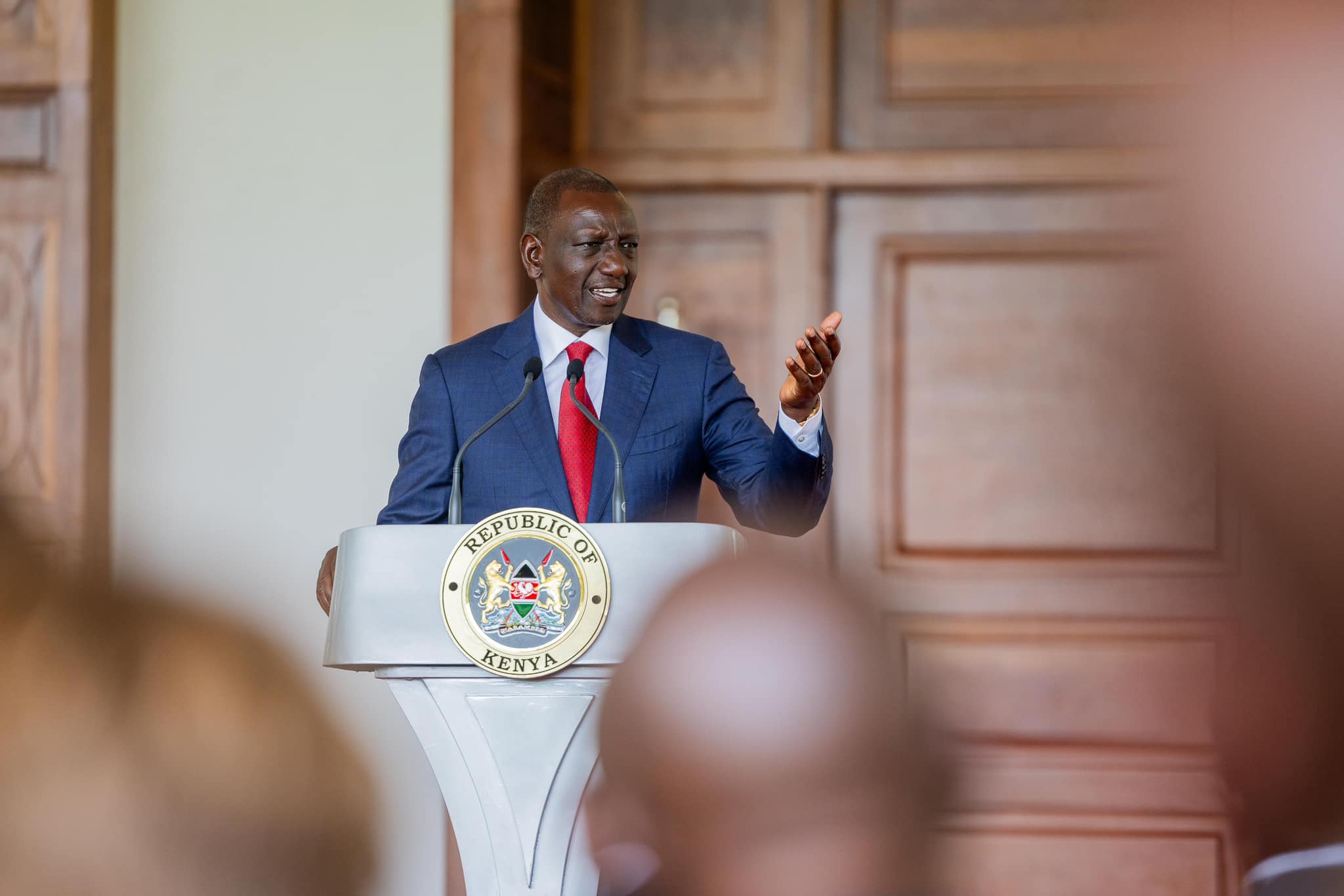
Ruto launches Silicon Savannah Innovation Park
The park aims to position Kenya as global tech leader
The timing of this initiative is significant.
In Summary

Audio By Vocalize

Kenya stands at a pivotal juncture in its quest to assert itself as a global leader in technology and innovation.
The unveiling of the University of Nairobi’s Silicon Savannah Innovation Park, launched by President William Ruto, marks the country’s deliberate move to establish itself as a hub of technological advancement, alongside global heavyweights such as Silicon Valley.
This initiative is not merely a statement of intent; it reflects a structured, ambitious vision to use innovation as a key driver of Kenya’s economic and developmental future.
At the core of Silicon Savannah is the empowerment of young innovators tasked with tackling some of the world’s most pressing challenges.
The park’s focus is from using artificial intelligence to combat food insecurity, to developing cost-effective satellite technology to bridge the connectivity gap in rural areas, to advancing sustainable energy solutions.
By creating an ecosystem designed to transform visionary ideas into tangible solutions, Silicon Savannah aims to position Kenya as a leader in technology, both locally and on the global stage.
The timing of this initiative is significant.
As global technological advances accelerate, NASA’s Artemis program is charting a new course for lunar exploration, with future missions aiming to push the boundaries of space travel.
Simultaneously, SpaceX’s Starship spacecraft, in its sixth test flight, completed an astonishing 17,500 kilometres in just 65 minutes, splashing down in the Indian Ocean near Australia.
These milestones highlight the exponential speed at which space exploration is progressing and reflect the broader trend of rapid innovation that is reshaping industries worldwide.
From Neuralink’s quest to merge human consciousness with artificial intelligence to Tesla’s Optimus robot pushing the frontiers of automation, technological breakthroughs are redefining what is possible—and they are doing so at an accelerating pace.
Kenya’s ambition to become a key player in this global innovation race mirrors the trajectories of other fast-growing tech ecosystems such as Silicon Valley in the U.S., Bangalore in India, and Shenzhen in China.
Shenzhen, once a modest fishing village, transformed into a global tech powerhouse through strategic investments in technology and innovation.
Kenya, with its Silicon Savannah initiative, seeks to replicate this success, creating an environment where talent and investment converge to spur rapid growth and development.
The foundation for this ambition has already been laid with Kenya’s track record in technological breakthroughs, such as the revolutionary MPESA mobile payment system.
Silicon Savannah seeks to build on this legacy by scaling innovations that address both local and global challenges.
Kenya’s growing digital connectivity, facilitated by initiatives like Starlink, positions the country to harness technological advancements more effectively, accelerating its role in the global tech ecosystem.
President Ruto’s call for Kenya to focus on creating technology rather than simply consuming it reflects a shift in the national mindset.
This shift is particularly important, as it signals that Kenya’s youth are no longer passive participants in the global race for innovation—they are emerging as leaders.
Silicon Savannah embodies this shift, creating a space for collaboration, creativity, and determination to drive Kenya’s transformation into a technological powerhouse at an accelerated pace.
This focus on speed is not merely symbolic.
It mirrors the broader trend of rapid technological progress across the continent.
Rwanda’s "Kigali Innovation City" and South Korea’s emergence as a global leader in electronics and robotics demonstrate how innovation can serve as a catalyst for national transformation.
By tapping into this momentum, Kenya aims to fast-track its growth in the global tech arena, positioning itself to make an outsized impact in a relatively short time.
Silicon Savannah is more than just a physical infrastructure project; it is a strategic, long-term commitment to fostering innovation, entrepreneurship, and technological leadership.
It is a clear declaration that Kenya believes in the power of human ingenuity and sees itself as a critical player in the technological advancements that will shape the future.
As the world races toward breakthroughs in fields such as space exploration, artificial intelligence, and automation, Kenya is positioning itself to be at the forefront of these developments.
This is a moment of great potential for Kenya.
With Silicon Savannah, the nation is poised to accelerate its role in the technologies that will define the 21st century.
In a world where speed and precision are increasingly important, Kenya’s commitment to these values promises to make a lasting impact on the global stage.
Fwamba NC Fwamba is a governance analyst and leader of the
National Alternative Leadership Forum

The park aims to position Kenya as global tech leader